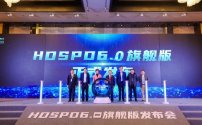You are using an out of date browser. It may not display this or other websites correctly.
You should upgrade or use an alternative browser.
You should upgrade or use an alternative browser.
Chinese OS and software ecosystem
- Thread starter Jiang ZeminFanboy
- Start date
Kylin OS has been adapted by over 1.5 million users with 6000 ecosystem partner and 38000 registered companies据官方公布的信息,截至2022年12月29日,麒麟软件生态软硬件兼容适配数总计150万+,其中软件生态兼容适配108万,硬件生态兼容适配42万,生态合作厂商超过6000家,麒麟软件生态适配官网累计注册企业和用户超38000。
supercat
Colonel
New Device’s OS Shows How China’s Tech Firms Guard Against Foreign Sanctions
Chinese startup Fyde Innovations released its first device running an operating system that isn’t built on foreign proprietary technology — meaning the company or its products will not be vulnerable to sanctions by the U.S. and others.
The Fydetab Duo, which went on sale Wednesday in China for 3,999 yuan, can be used as a tablet and a laptop...
...
It runs Fyde Innovations’ own FydeOS, which was built off the open-source version of Google’s lightweight Chrome OS, called Chromium OS, which doesn’t come with any of the U.S. tech giant’s suite of software, such as Gmail. FydeOS is the most well-reviewed Chromium OS-based project on GitHub, the software development community owned by Microsoft Corp.
...
Some big names are already actively involved in the business. Huawei Technologies Co. Ltd. is building its ecosystem with HarmonyOS and OpenHarmony, focusing on portable platforms, vehicles, and the Internet of Things (IoT).
For desktop computers and servers, state-affiliated Tongxin Software Technology Co. Ltd., also known as UnionTech, and Tianjin Kylin Information Technology Corp. focused on building operating systems based on Linux, which is widely used for cloud computing and servers. For their products, the two companies targeted government agencies and state-affiliated firms in China.
broadsword
Brigadier
But what are the apps available? I suppose programs that run on Windows are not compatible.
2023-01-06 08:24:55CHINA DAILY Editor : Li Yan
China will endeavor to achieve breakthroughs in developing operating systems that are considered key to digital transformation, and build a robust ecosystem for their application across a wide range of industries, officials and experts said.
Vice-Minister of Industry and Information Technology Wang Jiangping said persistence is needed to develop such crucial technologies. So, more efforts will be made to enhance the supply of indigenous operating systems.
An operating system or OS is the foundational software that powers a digital device. Google's Android, Apple's iOS and Huawei's HarmonyOS are among the leading OSs that power smartphones or smart devices, while Microsoft's Windows is considered the market leader in personal computer OSs.
Promising that the ministry will strengthen top-level design, Wang called for a bigger push to jointly build a more active open source community, explore typical application scenarios and best practices of key software, and promote open cooperation.
The field of OSs is a key area that Chinese companies are working on to reduce their reliance on foreign companies amid the US government's restrictions.
Huawei Technologies Co is continuing its development of the OpenEuler OS as part of its broader push to solve China's lack of homegrown OSs for fundamental digital technologies.
The OpenEuler is designed for enterprise customers and can be used in devices such as servers, cloud computing and edge computing. Last year, Huawei donated the Euler OS to the OpenAtom Foundation, a major open source foundation in China, to make Euler an open-source OS.
Wang Tao, a member of Huawei's executive board, said the OpenEuler open source community now has 600 enterprise members. More than 3 million sets of equipment have been equipped with the OpenEuler OS so far.
More importantly, the overseas version of the OpenEuler OS has seen more than 1 million downloads from 1,682 cities in 130 countries and regions, according to Huawei.
"Huawei will focus on technology investment, improve the innovation and competitiveness of basic software, support the construction of digital infrastructure and the prosperity of application software ecology," Wang said.
Ni Guangnan, an academician at the Chinese Academy of Engineering, said the OpenEuler OS supports a variety of processor architecture. Relying on the OpenEuler open source community, it can promote the development of computing technology and industry through collaborative innovation with world peers.
The OpenEuler OS is chiefly used in industries like finance, transportation and telecom.
China's 14th Five-Year Plan (2021-25) for the Development of Software and Information Technology Service Industry emphasized that by 2025, the country will significantly improve its supply capacity of key software such as basic software and industrial software, and will build two to three influential open-source communities globally.



